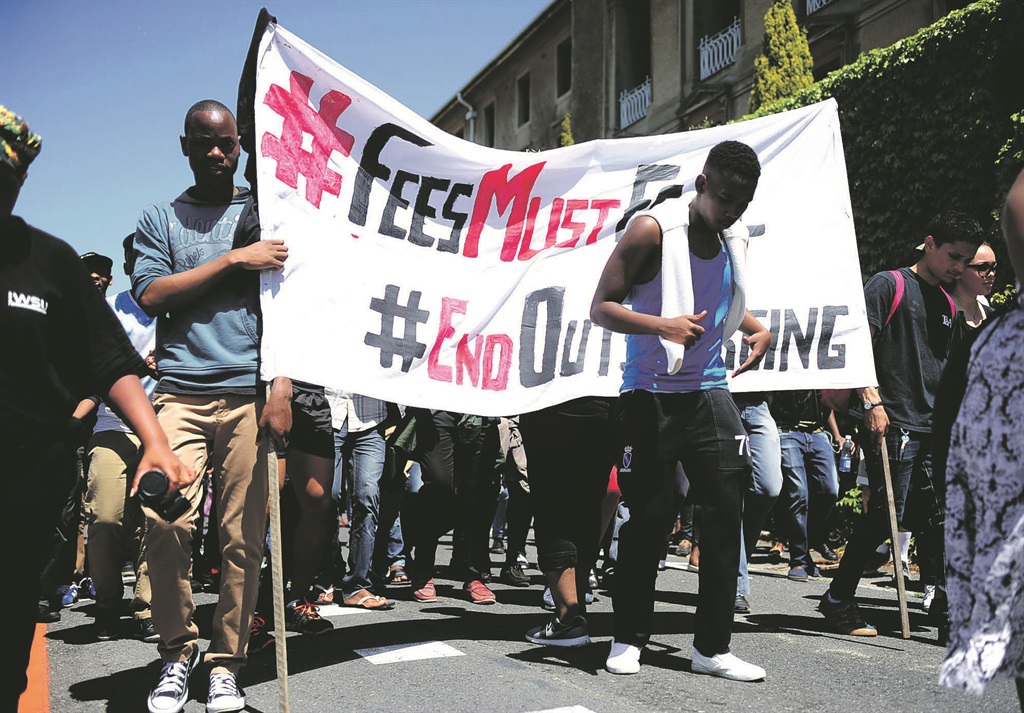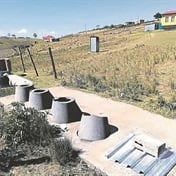
The reopening of tertiary institutions next year might get off to a rocky start after a few student leaders rejected what appeared to be a last-ditch attempt by government to pre-empt potential nationwide student protests during the 2016 registration period.
The department of higher education and training has been working with police to prepare for the worst. Students have been warned that those who participate in any disruptive protests will be dealt with.
Higher education spokesperson Khaye Nkwanyana said there were coordinated efforts to identify flash points in all nine provinces.
“We are not going to tolerate any acts of hooliganism, where students go outside structures like the SRC [Students’ Representatives Council] and decide to start a strike. Police must act and enforce the law. We are not saying this must be violent, but they must protect our institutions. Police are preparing for the worst next year, so we want to coordinate with them,” he said.
“Their mandate in the provinces will come from national level. Emphasis will be on flash points like Gauteng and the Western Cape.
Police spokesperson Brigadier Hangwani Mulaudzi said law enforcement agencies were expecting “a lot of problems” when universities reopened, but “as the police, we are ready for action”.
On Thursday, SRC presidents met Minister of Higher Education and Training Blade Nzimande in Joburg at the invitation of the parliamentary portfolio committee on higher education.
SRC member at the University of Pretoria Thabo Shingange, who was at the round table discussion, said: “In short, they were saying, ‘Don’t strike’ and most of us replied, ‘Under such circumstances, a strike of even greater magnitude is inevitable.’”
He said he got the feeling government was on a fact-finding mission to gauge where students were in terms of proceeding with protests, “hence the point on the agenda of the ‘role of SRCs in stabilising the 2016 registration processes’”.
Shingange said he did not get the sense that there was a clear direction in dealing with student demands.
This was echoed by deputy SRC president at Unisa Phumelele Nokele, who decided to boycott the meeting.
“We were not aware Blade Nzimande would be there. Even if we were, our position is that these discussions are now a futile exercise. We keep having the same conversation with no results. They know there are demands. We are tired of talk with no action.
“It will not be registration as normal in 2016,” he vowed.
SRC executive member at Stellenbosch University Lwazi Pakade said the issue of registration in the new year had already become an issue.
“Many students are asking me via email if they should come back next year since they have a lot of debt, which will prevent them from being able to register.
“We’re telling them to come back and we’ll try our best to attend to them. The debt is just one issue; the other is that of council’s decision to keep the current language policy as it is, even though we have said it is placing many of us at a disadvantage.”
At the meeting, Nzimande offered an unconditional apology to students for the “students must fall” comment, which he said was in jest. He also told the group he felt he was being misunderstood on certain matters.
He had said: “If at any time you want to meet with me, I am available.”
However, a comment he had made on free education not being possible in a capitalist society did not go down well with the group.
He said free education in an unequal society like South Africa would have unintended consequences for the rich. He cited the instance of the children of ministers who could afford to go to university.
A commitment that Shingange and others acknowledged was an outcome from the meeting that a National Student Financial Aid Scheme official would be deployed at every institution nationwide to deal with funding issues at the opening of universities.
This was confirmed by Nkwanyana.
“Every year, we have issues relating to funding. So we have decided to cut out the middle man – the university – by having officials on site.”
Nkwanyana said the talks with universities regarding this were still under way.
Portfolio committee chairperson Yvonne Phosa said the purpose of the meeting to hear the students was to “get consensus on matters going forward”.
“We wanted to know what was the best way to ensure there is normalisation after the protests and the legitimate issues that were raised, [as well as] government’s declaration that it is dealing with those issues. We hoped all of us would agree that the way forward was to go back to classes. We need this to happen in a conducive environment. We did not want to impose; we wanted consensus.”
She said the committee found the students “were agreeable to going back to classes, on condition all issues are addressed. We said they were being addressed, government is giving it attention and will respond in due time.”




 Publications
Publications
 Partners
Partners








